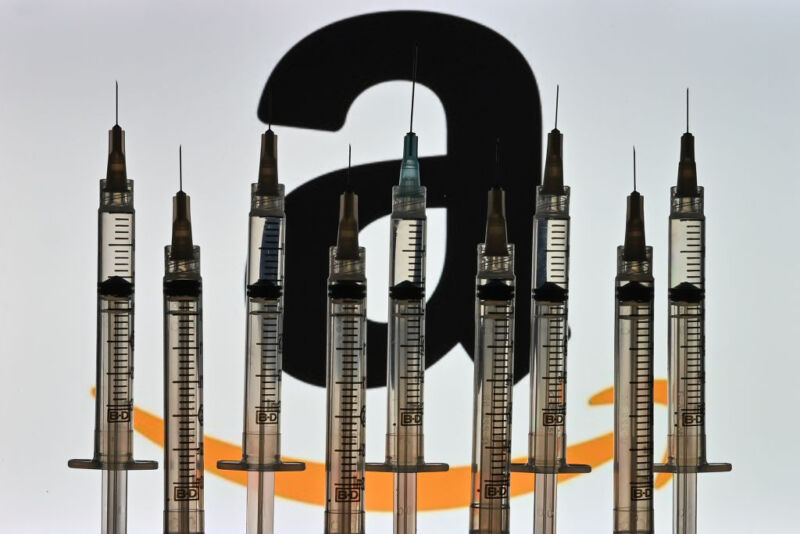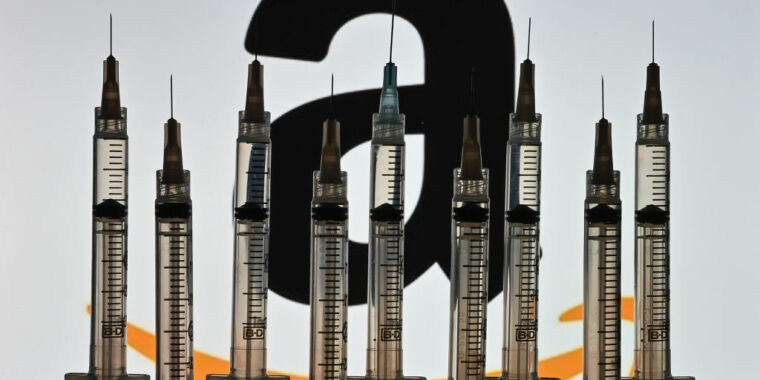
When Amazon launched Amazon Care to its employees in 2019, the goal was to test the product before rolling it out nationwide. After that rollout happened earlier this year, Amazon CEO Andy Jassy told Insider that the expansion would “fundamentally change” the healthcare game by dramatically improving the medical care process. He predicted that in the future, patients would be so accustomed to telecare and other new conveniences that they would think things like long waits and delays between in-person visits commonly experienced today are actually “insane.”
Now, The Wall Street Journal reports, Amazon has moved one step closer to that future by agreeing to a $3.9 billion deal to purchase One Medical, a company that operates a network of health clinics. With this move, Amazon will expand the number of patients it serves by accessing “a practice that operates more than 180 medical offices in 25 U.S. markets and partners with more than 8,000 companies to provide health benefits to employees, including with personal and virtual concern.”
Echoing Jassy’s enthusiasm, Neil Lindsay, senior vice president of Amazon Health Services, told WSJ that the company believes “healthcare is high on the list of experiences to be reinvented.” The acquisition of One Medical is a way for Amazon to further break into the $4 trillion healthcare sector at a time when Amazon’s revenues are declining and costs are rising.
An Amazon spokesperson declined to comment on questions from Ars about a planned timeline once the deal is closed for merging One Medical services into Amazon Care, or if there is a waiting list of companies that have historically expressed interest in joining. to become Amazon Care and who can benefit from the acquisition. Instead, the spokesperson referred Ars to her press release. One Medical did not immediately respond to Ars’s request for comment.
In the past, Amazon has partnered with major players and ended up throwing $100 million away at a losing healthcare venture called Haven, which tried to reinvent the wheel and failed after three years. This new venture is more expensive, but perhaps less ambitious, as it takes advantage of One Medical’s existing infrastructure and is therefore likely to be less disruptive. Lindsay says Amazon’s innovative focus for this venture is on accelerating healthcare and improving the overall patient experience.
The troubling past of One Medical
After the deal closes, One Medical’s CEO, Amir Dan Rubin, will remain “CEO”. In a press release to One Medical investors, Rubin expressed great enthusiasm for the deal.
“The ability to transform healthcare and improve outcomes by combining One Medical’s people-centric and technology-driven model and exceptional team with customer obsession, history of invention and willingness to invest for the long term , is so exciting,” says Rubin. . “There is a huge opportunity to make the healthcare experience more accessible, affordable and even more enjoyable for patients, providers and payers.”
Currently, One Medical is a primary care company that claims to share Amazon’s customer-centric approach to healthcare, offering a range of digital services, including wellness apps and 24/7 virtual care. Delivering on what WSJ says addresses a growing need for convenience due to the pandemic, One Medical lets members schedule appointments, renew prescriptions, and message their doctors in an app.
However, it has not turned out to be a complete success story. Nearly half a billion of Amazon’s investment in One Medical is paying off the company’s debt.
One Medical also recently came under fire in 2021 during a congressional investigation into how it administered COVID-19 vaccines when they first became available in December 2020.
The investigation uncovered emails and internal chat messages that Congress says showed One Medical was using its supply of vaccines to push expensive membership subscriptions. Congress reports that One Medical has successfully signed up nearly 400 members by making it easy to get a vaccine by buying a $199 membership and hard to get one if you haven’t paid for the membership . One senior executive talked to another, “the only way people can get a vaccine is if they’re members.”
In addition to accusations of profiting from vaccine scarcity, Congress says One Medical also hoarded vaccines for staff, their friends and their families, giving them early access to sign up for an appointment even if they weren’t yet eligible for it. a vaccine. Congress concluded, “One Medical’s deliberate disregard for proper vaccination priority has contributed to a delay in the vaccination of members of vulnerable communities.”
The Hill reported that “a spokesperson for One Medical called the memorandum ‘extremely unfair’ and noted that the company was ‘not given an opportunity to address the staff’s findings before the memorandum was released.'” The spokesperson also said. that “claims that One Medical used its vaccines to promote the company’s interests, convince more people to join,” or offer inappropriate vaccinations to friends and family were false.
Congressional investigation has not disrupted One Medical’s operations much. NPR reported that Washington state and nearby counties have stopped allocating vaccines to One Medical because of the scandal.
Rubin was running the company at the time. He has been CEO of One Medical since 2017 and previously held leadership roles at healthcare companies for decades, including a recent stint at UnitedHealth Group.
The recent Congressional investigation into One Medical’s early delivery of vaccines to vulnerable communities is not mentioned in the joint Amazon and One Medical press release. Instead, Lindsay expresses full confidence in One Medical’s approach to the delivery of patient care, saying Amazon will benefit from One Medical’s “people-centric and technology-driven approach to healthcare,” which Amazon says can “and will help get better care”. , when and how they need it.”

